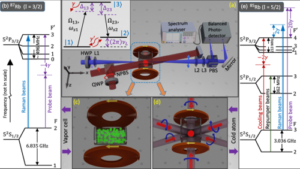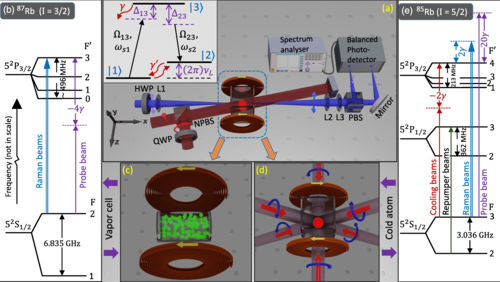
Raman Research Institute scientists report that spin coherence in atomic systems may be long-lived even at extremely low temperatures, according to India media sources. The work may open up the path to more efficient quantum computing.
The technique allows the efficient implementation of quantum operations and logic gates that help the system become a better quantum sensor compared to systems with short-lived coherence, the researchers report in Physics Review Research.
In a statement, officials said: “The newly discovered technique can help study the real-time dynamics of quantum phenomena such as quantum phase transitions in a non-invasive manner.”
According to the team, spin is a fundamental quantum property of atoms and elementary particles such as electrons and protons. Quantum properties are more easily observed and controlled at colder temperatures. However, because most detection techniques incold atom experiments are destructive and disturbs the atomic sample during detection, measurements of spin at ultralow temperatures are much harder to investigate and dynamic measurements at those temperatures were not available, the team reports.
The scientists said that they measured the properties of spins and lifetime of an atomic spin state with a million-fold improvement in detection sensitivity compared to the existing technology.

Motivation for the work comes from Nobel laureate Sir C.V. Raman’s seminal research into light scattering, often referred to as the Raman effect or Raman Scattering.
According to the team, this technology could have some impressive future uses beyond quantum. Devices based on the technique could more precisely detect small magnetic fields, which has important applications in mining and prospecting. The work also has important applications in biomedical imaging, where time-resolved measurements of small magnetic fields are required.
The team was led by Sanjukta Roy, Dibyendu Roy, and Saptarishi Chaudhuri and included doctoral students Maheswar Swar and Subhajit Bhar from RRI. The Department of Science and Technology and Ministry of Electronics and Information Technology supported this work.
The Raman Research Institute, founded by Sir Raman, is an autonomous research institute engaged in research in basic sciences.
If you found this article to be informative, you can explore more current quantum news here, exclusives, interviews, and podcasts.



















